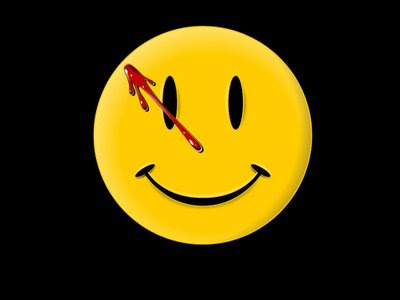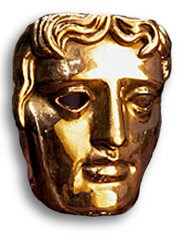
Three things struck me about Watchmen, from a screenwriting point of view. The first was how the plot moves, or rather how it doesn’t move. The second was how little this matters.
The story’s about the hunt for whoever’s killing costumed heroes, and why. At one point Rorschach finds a lead linking the conspiracy to a company called Pyramid Holdings. So, naturally, he investigates Pyramid holding. The only trouble is, there’s about an hours screen time between the two scenes.
Without the constant backstory, you could easily fit the plot into an hour long TV episode. McKee wouldn’t approve. If a story doesn’t constantly move forward, shark like, towards a third act climax then the audience will switch off, right?.
Well no. Watchmen is a brilliant, utterly gripping film that totally held my attention for 3 hours. This despite the fact that I knew exactly what would happen in every single scene, so faithful is the adaptation.
Which brings me to the third thing - how completely irrelevant the “What’s going to happen next?” factor is. This is supposed to be why we watch stories - to find out the ending.
This is something that’s been on my mind for a while. I happened to see two similar films in the same week a while ago - Control and Downfall. Both great films. Both are about charismatic right wing figures who kill themselves in the end.
Those spoilers alerts are a joke, of course. The vast majority of the audience would have known the endings of both films before they start. Furthermore, There’s a scene in Control where Ian Curtis gets married, then they cut to his wife hoisting up the dryer in the kitchen. In Downfall, the blonde folk singing Goebels children pop surreally throughout. If you know how Ian Curtis killed himself, or what happened to the Goebels children, then it adds to rather than detracts from the film.
There seems to be a trend towards adaptations and true stories recently. In other words, towards stories that are already familiar. When I finally caught up with the second series of Rome recently, I remember coming back from work excited I’d have the last episode to watch. But why? I mean, the outcome was hardly in doubt : Anthony and Cleopatra were never going win the day and live happily ever after. Similarly, I watched series 2 of Dexter and then read the (excellent) novel before I saw the 1st series.
Add to this genre films, where the good guys win, the mismatched couple get together, the tragic hero gets their comeuppance and you have the question in how many film is the outcome in doubt. How often are we surprised by the ending? Very few films do a Se7en or an Empire Strikes Back. Even these films we rewatch - I‘ve seen Se7en about 3 times, and The Empire Strikes Back god knows how many times.
I’ve got Ice Cold in Alex next on my to see list. Marvellous film, but I’ve seen it at least twice before. I know exactly how it‘s going to turn out - The DVD even has a still from the famous last scene on the cover! Which raises the question : Why bother watching films, consuming stories if we know the outcome?

Maybe it‘s because it’s the ride, not the destination, that‘s important. We watch films to be entertained. To learn about the world. To feel something. To laugh and cry. To be comforted or challenged, to escape from or engage with our world.
The story is just the delivery method for whatever emotion or sensation or idea the film is trying to convey or invoke or inspire. In focusing on just on the technical aspects of story, then we’re in danger of forgetting that it’s the content that the audience pays to see, not the craft.




